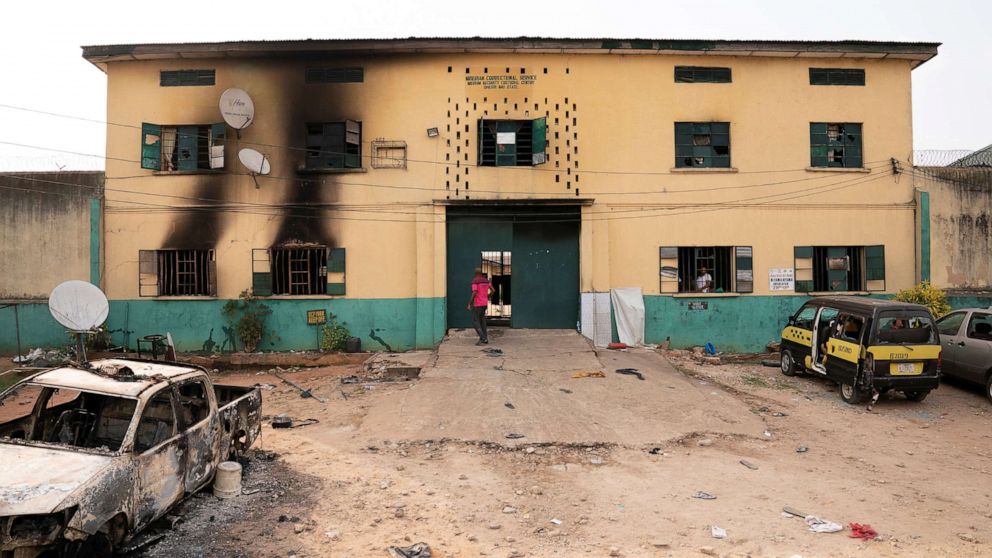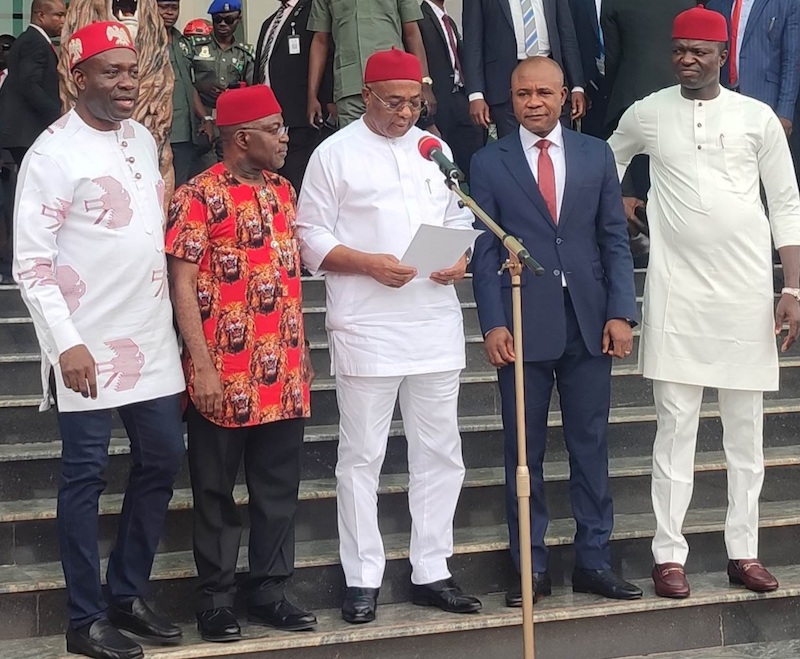
2.0 PARTIES ARE BOUND BYTHEIR CONTRACT
The rationale for holding parties bound by their contracts flows from the
mutuality of purpose and intention between them. The law is that, once
4
parties by their dispositions elect to be contractually bound with another,
provided there is absence of fraud or illegality, such parties would not
under the law be allowed to rescind or escape the performance of the
obligations arising out of the contract. This is represented with the maxim,
pacta sunt sevanda (meaning, agreement must be kept) . This principle
5
was given judicial baptism in ATTORNEY GENERAL OF NASARAWA STATE
V ATTORNEY GENERAL OF PLATEAU STATE , where the Supreme Court
6
Per FABIYI JSC (as he then was) aptly restated the law as follows:
“There is also the principle of Pacta Sunt Servanda which means
agreements of a party to a contract which are not fraudulent are to
be observed”
See also, the dictum of Oputa JSC (as he then was) in SONNAR NIGERIA
LTD V PARTENREEDRI M.S NORDWIND (Owners of the M.V Nordwind)
7
where the learned jurist held that,
“…Agreements which is neither contrary to law, nor fraudulently
entered into, should be adhered to in every manner and details”
However, due to unforeseen contingencies, parties may by their contractual terms stipulate the appropriate measure, or what should
govern the performance of their contractual obligations in case an eventuality occurs (Force Majeur clause). In the absence of such, the
general principles of common law on frustration shall apply in states that have no law in place, while in Lagos State the Law Reform (Contracts) Law of 2015 shall apply.
Flowing from that substratum, this piece seeks to x-ray the outbreak of COVID19, the policy of quarantine and self isolation and their implications on parties performing their contractual obligations. Accordingly, can the
outbreak of the epidemic qualify as an Act of God for the purpose of invoking (Force Majeur clause)? Or Can it be rightly said that, the outbreak of COVID19 frustrate performance of Contracts? This writer, shall, in the course of this discourse proffer answers to these thought provoking questions.
3.0 DO COVID’19 QUALIFY AS A GROUND TO INVOKE FORCE MAJEUR
CLAUSE?
As stated above, parties may by their terms stipulate in their contracts
what should operate in case of an eventuality. This is what is known in civil
jurisdictions and most commonwealth countries like Nigeria as Force
Majeur Clauses. The Nigerian Court of Appeal instructively noted the
8
scope and effect of the clause in GLOBE SPINNING MILLS NIGERIA PLC V
RELIANCE TEXTILE INDUSTRIES LIMITED as follows:
9
“Force majeure is a common clause in contracts which provides that
one or both parties can cancel a contract or be excused from either
part or complete performance of the contract on the occurrence of a
certain specified event or events beyond their control…Force majeure
is something that is unexpected and unforeseen happening, making nonsense of the real situation as envisaged by parties.”
Having stated that, it is plausible to note that, for a party to invoke the blessings of the clause, certain conditions must be met, they are:
- The clause must have been expressly incorporated as a term of their
contract. This simply means, the provisions cannot be implied.
Where per chance the parties failed to include the clause in the
contract, then, force majeur cannot be invoked to discharge the
parties from the contractual obligations due to the COVID”9. Parties
would have to resort to the restrictive doctrine of frustration
(discussed below). - The phraseology of the words in the clause would also determine the
invocation or otherwise of the clause. Where the phraseology of the
clause include words such as ‘epidemic’, ‘pandemic’, ‘diseases’ and
other analogous terms, then, it is submitted that COVID’19 qualify as
a ground for a successful invocation of the clause due to its
widespread destructive effects. The reason for this is because it is
the attitude of the courts when construing force majeur provisions to
construe same literally or restrictively. However, in the absence of
such all embracing terms, a party may also succeed in invoking the
clause if omnibus term such as ‘Act of God’ is included in the clause. - The outbreak of the Pandemic occurred out of control of the parties,
that is, unforeseeable. Here, the party would have to prove that the
outbreak of COVID’19 is out of their control as it is unforeseeable.
However, whether it is foreseeable or not would depend on the nature
of the contract. For instance, in a long term commercial contract, it
may be argued that since the outbreak of SARS (Severe Acute
Respiratory Syndrome) of 2002/2003 in China, the outbreak of COVID’
19 is foreseeable. - The outbreak of the Pandemic must render impossible the performance or continuation of performance of the contract. It is
- submitted here that this condition is also satisfied by the outbreak of
- COVID’19 because since its outbreak, many countries of the world
- have took emergency measures such as:; closure of borders:
- restriction of local and international travel: total lock down in which
- both public and private employees have been ordered not to go out
- and their movements generally restricted in other to curtail its
- destructive spread. It is further submitted that this measures,
- including the quarantine and self isolation regime renders
- performance of the contracts impossible.
- The party relying on the clause must have taken reasonable steps to
mitigate the aftermath consequences of the outbreak. Here, the party
invoking on COVID’19 must have scrupulously adhered to any
procedures laid down in the clause to avoid the damning effects of
COVID’19 outbreak such as given notices to the other party, as
exemplified by the DHL decisions above who after the outbreak of
the epidemic notified their customers of their inabilities to make
deliveries as scheduled.
As elucidated above, the invocation of force majeure depend chiefly on its
inclusion as a term of contracts between the parties, where the provision is
not stipulated, the doctrine of frustration would apply. What then is the
intercourse or, put correctly, how can a party successfully call to aid the
blessings of the doctrine?
4.0 COVID19 AND THE DOCTRINE OF FRUSTRATION
The doctrine of frustration operates to discharge parties from future
contractual obligations. As a prelude, the doctrine entails the occurrence
of a supervening event which, without default of the parties renders the
performance of contractual obligations radically, entirely and
fundamentally different from what was agreed upon. The Supreme Court of Nigeria in G.N NWAOLISAH V PASCHAL NWABUFOH aptly restated the - 10
- trite principle of law as follows:
- “Frustration occurs where the law recognizes that without default of
- either party, a contractual obligation has become incapable of being
- performed because the circumstances in which performance is
- called for would render it radically different from what was
- undertaken by the contract”
- Delineating the instances in which the doctrine has been often invoked, the
- Court went further:
- “The events which have been listed by the court to constitute
- frustration are: (1) Subsequent legal changes or statutory
- impossibility (2) Outbreak of war (3) Destruction of the subject
- matter of the contract or literal impossibility (4) Government
- acquisition of the subject matter of the contract (5)Cancellation by
- an unexpected event like where other party toa contract for personal
- service, dies or where either party is permanently incapacitated by
- ill-health, imprisonment etc. from rendering the service he hs
- undertaken. Davies Contractors Ltd. V Fareham DC (1956) AC 696,
- Akanmu V Olugbode (2001) 13 WRN 132, NBCI V Standard (Nig) Eng.
- Co. Ltd. (2002)8 NWLR (Pt 768) pg 104, Obayuwana V The Governor
- of Bendel State (1982) SC pg 167, Taylor V Caldwell (1863) 3 B & YS
- 826, J.P Dawodu V B Anderson and Co, Ltd (1925) 6 NLR Pg. 105,
- Adu V Makanjuola (1944) 10 WACA Pg. 168”
- 11
- Furthermore, it is imperative to expediently asseverate that for a party
- affected by the outbreak of the pandemic to successfully invoke this
- doctrine, the following must be noted:
- An event must have occurred which radically change the obligations
- undertaken by the parties. It is submitted here, relying on the
decision of the Supreme Court in the case cited above and fleet of
other cases, that the outbreak of COVID’19 qualify as a frustrating
event. Furthermore, the Latin term “Non haec in foedera veni”
espoused in Davies Contractor Ltd V Fareham DC vividly played out
as a result of the emergency measures employed by Governments of
the world to curb the epidemic from spreading. It is to be noted
however that the pandemic must not have merely imposes difficulty
in performance. In other words, the pandemic must render the
performance of the contract commercially and legally impossible,
otherwise, the party would not be able to invoke the doctrine. This
was the position of the law in G.N NWAOLISAH V PASCHAL
NWABUFOH , where the apex Court Per ADEKEYE JSC at Page 36
12
paragraph C-E noted thus:
“A contract is not frustrated merely because its execution
becomes more difficult or more expensive that either party
originally anticipated and has to be carried out in a manner not
envisaged at the time of its negotiation. Davies Contractor Ltd
V Fareham NDC (1956) AC 696. Tsakineglon & Co v. Noblee
Thorh G.M.B.H (1962) A.C 93”
The frustrating event must have occurred without the fault of either
party. It is humbly submitted that the outbreak of this pandemic is
without the fault of either of the parties.
Having stated the above, a party relying on the outbreak of the pandemic is
definitely in constant search for the legal implications or effects the
pandemic would have on his performance of the contract, what then are
the implications of the outbreak of the pandemic on the performance of
contract?
5.1 LEGAL EFFECTS OF COVID’19 ON PERFORMANCE OF CONTRACT
The legal effect of the pandemic on contract would be determined by the
remedy a party wants to invoke: if the parties are to invoke the force
majeure provisions of their contract, then, the effects would be as it has
was agreed between them. However, in the absence of the force majeure
provisions, a successful invocation of the doctrine of Frustration would
produce the following effects.
- The parties would be discharged from future obligations from the
moment the frustrating event occurred. In this instance, the parties
would be discharged from the day of the outbreak of COVID’19. - Meanwhile, on the performance of obligations that have accrued
before the outbreak of COVID’19, in states where the common law
principles on frustration still operate, the decisions of the English
Court in FIBROSA’s case shall apply. However, in states like Lagos
13
State, the extant provisions of the Law Reform (Contracts) Law of
Lagos State 2015 shall apply.
CONCLUSION
The occurrence of unforeseeable events are customarily expected
and envisaged by most businesses of the world, most especially in
this 21 century business world. This accordingly requires business
st
owners and contracting parties to be anticipatory of unforeseen
circumstances when reaching contractual agreements or signing
business deals. This is advisable because relevant provisions would
have been included in their contractual terms, and that would suffice
in mitigating the hardships or consequences of unforeseen
circumstances like COVID’19 in the no distant future.








